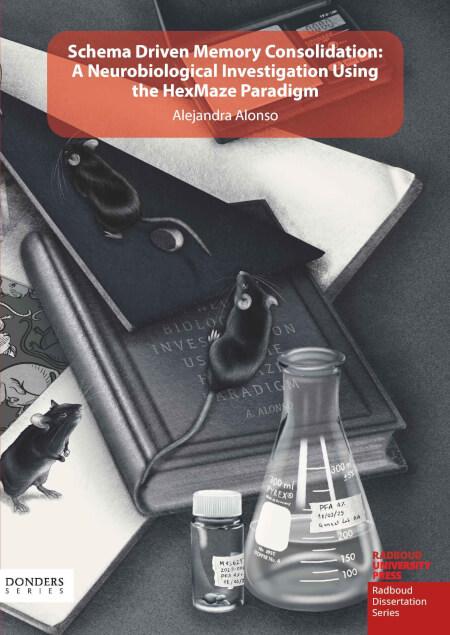Schema Driven Memory Consolidation: A Neurobiological Investigation Using the HexMaze Paradigm
Keywords:
Neuroscience, Animal behaviour, Pharmacology, Mathematical modelsSynopsis
This thesis investigates the neurobiology of schemas in memory consolidation, focusing on how prior knowledge facilitates learning. Using the mouse HexMaze—a task designed to study spatial and schema-based memory—three distinct learning phases were identified, showing that memory development depends more on elapsed time than experience frequency.
A gradient schema theory is proposed, suggesting that hippocampal involvement in memory decreases as prior knowledge increases, shifting memory processes to cortical regions. Pharmacological and molecular experiments revealed that hippocampal, prelimbic, and retrosplenial cortices form a distributed memory network, with dynamic contributions during schema formation and retrieval.
Findings emphasize the flexibility and efficiency of schema-based learning, where extensive prior knowledge enables rapid cortical consolidation. This work underscores the importance of schemas in memory and demonstrates the HexMaze as a powerful tool for studying complex learning processes in rodents.

Published
Series
Categories
License

This work is licensed under a Creative Commons Attribution-NonCommercial-NoDerivatives 4.0 International License.


